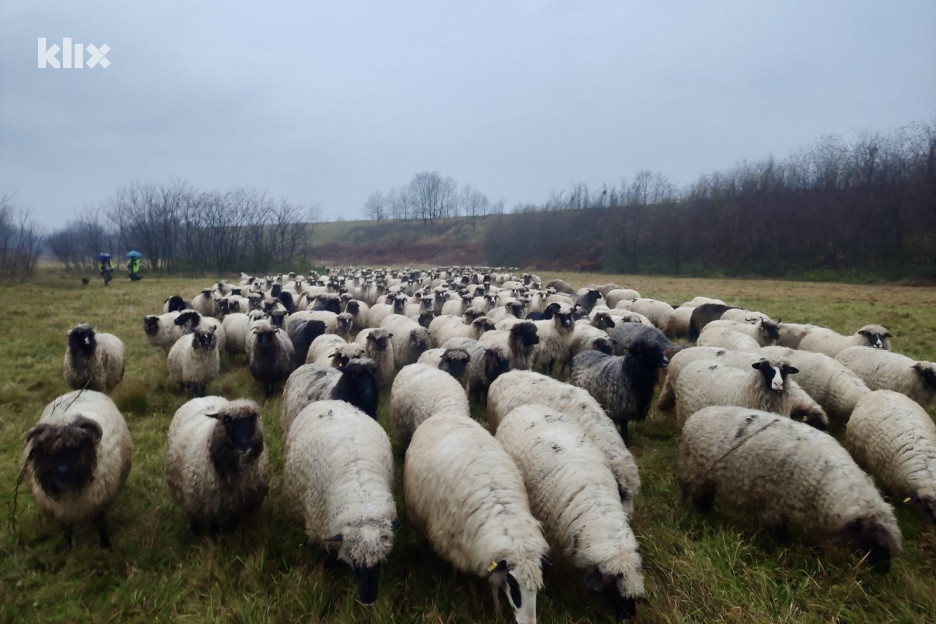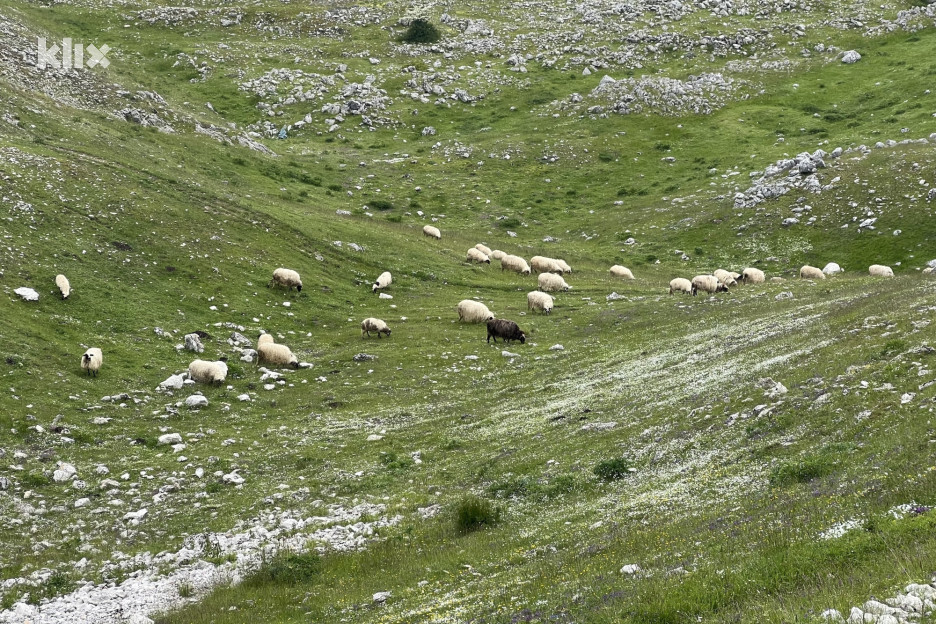Animal production is considered one of the key segments of the agricultural industry in Bosnia and Herzegovina, and this includes sheep farming, which is still not sufficiently developed.
A large number of sheep breeders are not in the system, considering that they do not have a registered business or farm, and as unfair competition they represent a problem for registered sheep farmers.
Sheep farming, as one of the main links in the chain of animal production, is accompanied by numerous challenges and problems faced by sheep breeders, who have put their activities under the legal framework.
One such example comes from the Tuzla Canton, where despite increasing incentives, especially from the level of the Federation of Bosnia and Herzegovina, sheep farming is stagnant. In that region of our country, the Association of Shepherds was recently formed, which brings together sheep breeders.
“From the level of the Federation of Bosnia and Herzegovina, we have incentives for natural persons of 30 KM per head, and for those who have a registered trade, that amount is 65 KM. That is good, especially if we bear in mind that it used to be 10 KM per sheep. When it comes to the Tuzla Canton, incentives should be given to herders with 25 to 50 heads in the future”, says the president of the Association of Shepherds TK Nedžib Avdić.

Nedžib Avdić (Photo: AK/Klix.ba)
Avdić is in the group of more advanced herders, considering that he has 300 sheep in his flock, which are grazing in the surrounding areas of Tuzla. It is not a problem for him to get incentives from the Federation of Bosnia and Herzegovina, but it is for those who count below 50 heads.
“My flock is grazing near Tuzla, and the market for sheep meat exists throughout the year. I use my necks exclusively for the purpose of meat production, I deal with sales throughout the year, and the highest demand is around May 1 and Kurban Bayram,” says Avdić.

Nedžib Avdić’s herd (Photo: AK/Klix.ba)
Sheep farms in the Tuzla Canton are most troubled by incentives for a smaller number of sheep and livestock treatment. Also, as they state, in the most populous canton in the Federation of Bosnia and Herzegovina, a larger number of sheep come from the Travnica region brought by nomads.
“We know that nomadism is prohibited by law, but the inspections are not doing their job. Our shepherds reported these cases, but there was no reaction, because responsibility is always shifted from one to the other. Generally, these herds come clean and vaccinated. The problem for us right now is that we don’t have enough sheep here in the Tuzla Canton. I would like to have so many of them that nomads bother us, but we don’t,” says Avdić.

Areas of Bjelašnica are suitable for grazing (Photo: AK/Klix.ba)
Meat is the most important sheep product, and in production, most of the income is realized through sheep or lamb meat. In Bosnia and Herzegovina and the countries of the region, the share of sheep meat in the production and consumption of the population is poorly represented.
Today, lamb meat is produced using different technologies, from pasture fattening together with sheep to intensive fattening in feedlots. The meat of younger categories of sheep is lighter and has little fat, while the meat of older sheep has a darker color and a specific smell and taste.
Sheep meat comes on the market as young lamb, lamb and mutton. Through sheep breeding, apart from meat, this type of animal is also used for wool, milk and cheese.
Source: klix.ba





